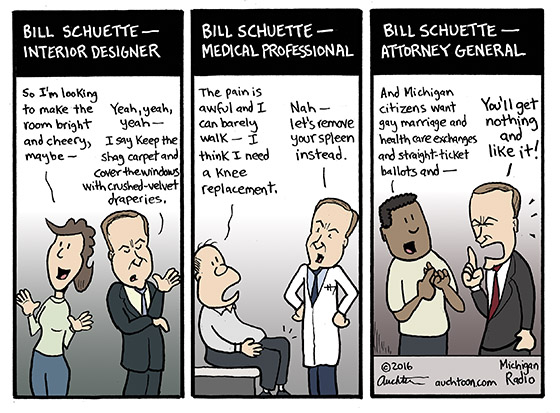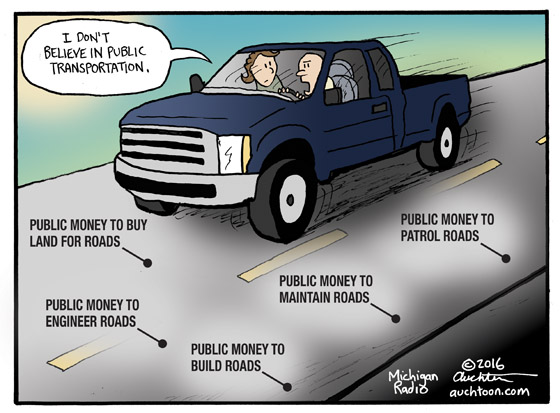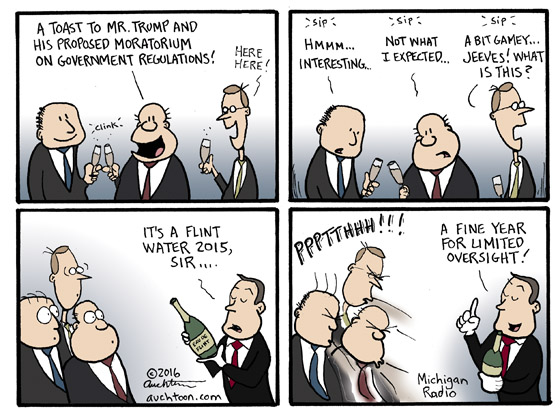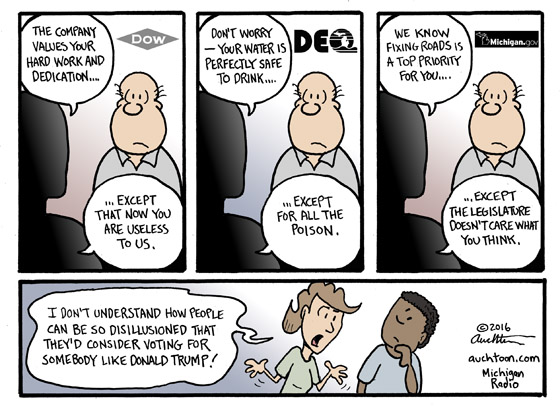Bill Schuette Occupations
If you spend more than a few moments with my wife’s family, there is a pretty good chance you’re going to hear a Caddyshack reference. That is, a quote from the 1980 film will work its way into the conversation — sometimes in context, always funny. So coming off a week’s vacation with them, it’s not hard to find the inspiration for the punch line in panel three of the cartoon. “You’ll get nothing and like it!” is of course how Judge Smails shuts down his grandson, Spalding, as the teen lists off what he wants to order at the snack shack.
Dang if that doesn’t capture the essence of the Attorney General, Bill Schuette, who in his tenure has made a habit of actively shutting down the desires of his citizenry. The straight-ticket ballot issue is the latest example. Michigan voters have demonstrated their preference to support a political party’s entire slate of candidates with a single mark on a ballot. Schuette is fighting with particular zest to uphold new legislation that bans straight-ticket balloting, and it feels like more for political advantage than out of a sense of duty.
I know. Shocker. Politics affecting the office of Attorney General! This is certainly not unique to Republicans or Bill Schuette. (Goodness knows that Democrat Jennifer Granholm leveraged the heck out of being AG to get her governor gig.) And I absolutely don’t support the idea that the AG should automatically endorse whatever the majority opinion happens to be. I think American history has proven just how wrong the majority can be.
But that doesn’t mean Schuette shouldn’t be called out for Smails-like behavior. It was actually a different scene from the movie that inspired the cartoon, but I couldn’t figure out how to work it in. It’s the part where Judge Smails is trying to impress young Danny Noonan with the need for laws and righteousness.
Danny, Danny, there’s a lot of, uh, well, badness in the world today. I see it in court every day. I’ve sentenced boys younger than you to the gas chamber. Didn’t wanna do it. I felt I owed it to them.






